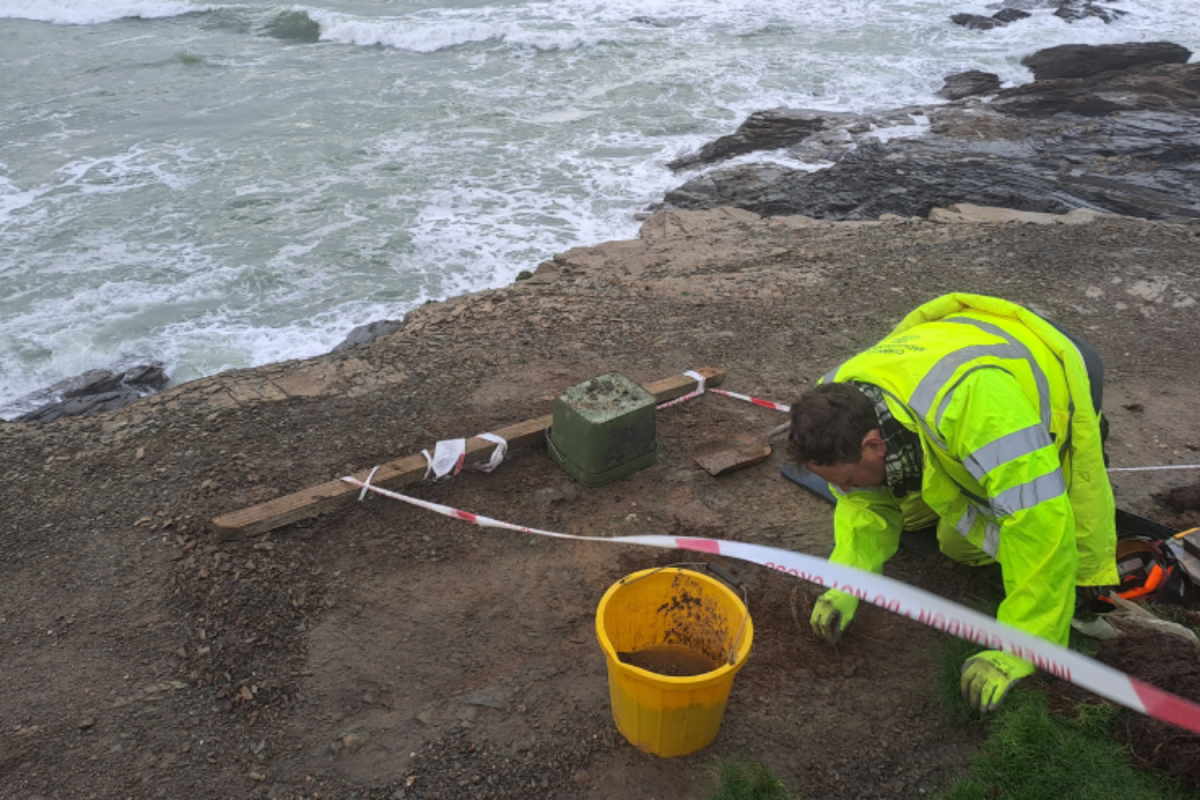The skeleton of what is believed to be a shipwrecked 18th-century sailor has been uncovered by a beach in Cornwall, southwest England.
The human remains were spotted by a member of the public on a coastal footpath near the town of Padstow and the authorities were alerted.
Devon and Cornwall Police officers and forensic scientists determined that the remains were historic and the footpath was not a crime scene.
The site was then turned over to Cornwall Council's Archaeological Unit, which obtained a license to excavate the remains and removed the bones with help from the person who had discovered them.

It is not uncommon to find human remains along the coastline in Cornwall, particularly after bad weather and storms.
Ann Reynolds, senior officer for the rural historic environment at Cornwall Council, said: "Initial investigation has shown that the remains were of an adult, cut off just above the knees, potentially by the construction of an adjacent hedge. Two bones have shown heavy wear patterns, suggesting an exceptionally well-developed upper body muscle mass. This may indicate a life of hard labor, pulling, pushing and lifting.
"Given the location of the remains on the cliff and near the notoriously dangerous approach to Padstow Harbour, it is possible that they are of a shipwrecked sailor and, if so, potentially date to before 1808—after which the Grylls Act decreed that drowned remains washed ashore should be buried in consecrated ground."
The 1808 law, formally known as the Burial of Drowned Persons Act, was an act of parliament decreeing that all bodies washed ashore from the sea should be removed by churchwardens and buried in consecrated ground.

Before this legislation was passed in the early 19th century, bodies washed ashore were often unceremoniously buried without a coffin, which is what the Cornwall researchers believe may have happened in this case.
Reynolds said the council's Strategic Historic Environment Service had to act swiftly when the remains were discovered. "First to determine that they were archaeological in nature and then to carefully remove the remains, showing dignity to the deceased and to avoid any distress to visitors to the spot."
Councillor Martyn Alvey, portfolio holder for environment and climate change at Cornwall Council, said: "I'd like to thank everyone who has been involved in this excavation and shown such care while carrying out their work. I hope that we can discover more about this individual before they are laid to rest once more."
After further analysis of the remains, a reburial will be organized.
Uncommon Knowledge
Newsweek is committed to challenging conventional wisdom and finding connections in the search for common ground.
Newsweek is committed to challenging conventional wisdom and finding connections in the search for common ground.
About the writer
Alice Gibbs is a Newsweek Senior Internet Trends & Culture Reporter based in the U.K. For the last two years ... Read more





